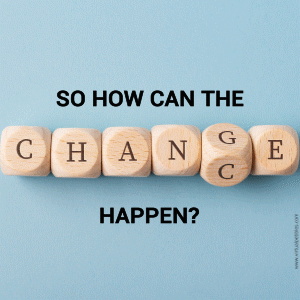Through a cycle of first-hand experience, reflection, analysis, and experimentation, educators engage students through experiential education, a pedagogical method. The personal connection to in-depth, applied learning is valued in experiential education, which also increases productivity in both the student and the teacher. NEP 2020 envisages "experiential pedagogy" as one of the essential tools to achieve holistic education.
This is envisaged in various ways – through project-based learning, art integrated learning, activity clubs for arts, science, maths, environment etc.., vocational courses, internships, peer feedback, discussions etc. Teachers can use discussions, reflections, and debriefing sessions to evaluate the success of an experiential learning experience. Debriefing can help to prolong and reinforce learning by serving as a culminating experience. Utilize the previously planned assessment strategies in addition.
However - the shift to experiential pedagogy is probably the most difficult to attain. Not because – it requires a significant investment. Nor that some new things have to be learnt or that it is difficult.
It is difficult to change the existing. The inertia is high. The subject portions have to be finished, and teachers will be busy. The teachers will find that teaching is more manageable than creating a learning environment. The children and parents will continue to focus on marks. School management and newspapers will publish 100% pass reports.
So how can the change happen?

Change happens very slowly. It occurs on the edges. We need to identify the forces driving the change and give them headwinds.
The good thing is that the "experiential pedagogy" does not have a prescribed syllabus. Teachers should be able to think of how they would do it at their own pace, given the strengths and limitations of their learners and their circumstances.
Back this up with discussions and reflections so teachers can assess their progress. Creating a digital portfolio and getting and receiving peer feedback is a great way to leverage the technology to achieve the purpose.
Management should further back this up with a rewards and recognition scheme to encourage the new behaviour. The idea is not to push and force compliance (trying to 'drive' change) but for a more patient approach. Adopting a bottoms-up approach rather than a top-down push.
tickLinks provides tools and community for teacher support, engagement and motivation to help implement NEP2020 and 21st Century education. A lot of emphases is laid on Bottom-up.
Engagement and adoption so that teachers can implement "experiential pedagogy" at their own pace and be recognized for their work.
Students' preparation for their chosen careers is completed with the aid of experiential learning opportunities, which support the theory and content covered in class. Through doing, finding, reflecting, and applying, students learn through experiences that are more focused on them than on the instructor. By responding to and resolving issues and procedures from the real world, students build and increase their decision-making abilities through these experiences and communication skills and self-confidence.
Pune Zilla Parishad launched Acharya Vinoba Bhave Sikshak shayak Karyaram – to support, Engage and motivate teachers. The Vinoba app and program – are used by all the teachers in the district government schools. The Vinoba app is built on the tools and programs of tickLinks.
On 06th May 22, Hon Dy Chief Minister Ajit Pawar launched the Shaala Sudhar program to raise the standard of the schools in Pune. The Vinoba app was also launched as a part of the Shaala Sudhar program. Pune Zilla Parishad CEO Ayush Prasad, Shobha Khandare.
tickLinks wants to make these lively communities by fostering contact in school clusters. With the aid of tickLinks, a network of educators can collaborate on projects, learn from one another's efforts, and develop their professional portfolios. By helping them and providing them with the appropriate tools, such as lesson plans matched to the curriculum and more, for maximum student engagement, we work to implement the NEP, 21st Century Education, to develop prepared teachers for the modern classroom. Programs at different levels are used to thank teachers for their accomplishments monthly, quarterly, and annual. Students may be enrolled in clubs and competitions. Portfolios for students and teachers can be used to document and present learning.

